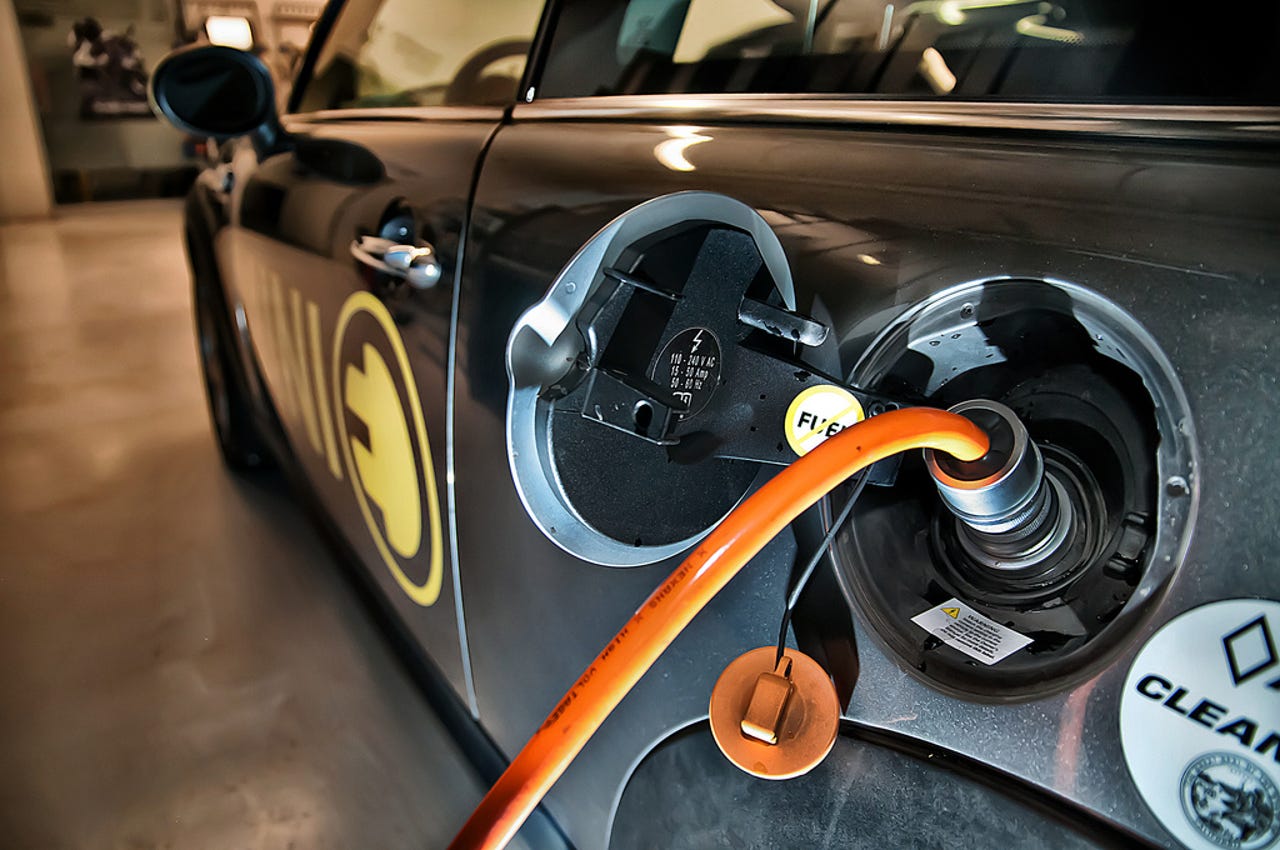Senate Committee thinks hosting Formula-E will boost electric vehicle uptake


The Senate Select Committee on Electric Vehicles wants governments around Australia to spark interest from the public in electric vehicles (EV), recommending it embark on initiatives such as bringing a Formula-E Championship race down under, as it believes the nation is lagging behind when it comes to the uptake of EVs.
"EV uptake in Australia lags behind that of other comparable countries due to a relative absence of overarching policy direction from Australian governments," the committee said in its report [PDF], tabled on Wednesday.
"The higher upfront cost of EVs, concerns about driving range, lack of recharging infrastructure, and limited model availability are key factors hindering consumer uptake."
The committee, referencing a remark it heard from the Australian Electric Vehicle Association of South Australia, said using sport was a means to "capture the public's imagination" and to show that EVs are "high performance machines".
"In particular, the committee supports a Formula-E event being hosted in Australia. The committee also notes the possible flow-on benefits that such an event would have in relation to the hosting of associated EV activities," it wrote under a recommendation made in its report.
The committee made 17 recommendations in total, including asking the government to develop a national EV strategy to facilitate and accelerate EV uptake, as well as to ensure that Australia takes advantage of the opportunities and manages the risks involved in a transition to EVs.
The strategy should also include a 10-year plan detailing priority electricity network infrastructure upgrades that are needed to manage demand from EVs, it said, noting it also wants a national charging network.
To develop and implement the national EV strategy, the committee is recommending an inter-governmental taskforce be stood up, and that a consumer campaign be included.
It also wants targets set for light passenger vehicles, light commercial vehicles, and metropolitan buses, as well as for its own government fleet, in moving to electric vehicles.
The committee agreed that Battery-Electric Vehicles (BEVs), Plug-in Hybrid Electric Vehicles (PHEVs), Hydrogen Fuel Cell Vehicles or Fuel Cell Electric Vehicles (FCEVs), and Hybrid Electric Vehicles (HEVs) all classify as EVs
Included in its wish list is the request for a 10-year EV manufacturing roadmap that covers research and development, vehicle, and system design. The roadmap should also include strategies on the manufacture of batteries, telematics, supply chain, and components, the committee said. Additionally, it is recommending national training arrangements be made for automotive service technicians in relation to EVs, as well as apprenticeships and traineeships.
"With the closure of manufacturing plants for [internal combustion engine] vehicles, the committee believes that there are significant opportunities in the research and development, systems, and manufacturing of EVs and EV components for Australian companies," it said.
The committee wants governments to introduce more stringent vehicle emissions standards and establish a new CO2 standard, for when EVs become more prevalent.
Lastly, the committee recommends that the Australian government work with Standards Australia to establish a series of national standards in relation to EVs.
During the committee's first hearing last year, Tesla senior manager Sam McLean said there would be advantages to producing its EVs in Australia, including easier access to lithium and nickel, as well as a skilled workforce to tap into.
The committee agreed with McLean's belief that Australia should invest in EV infrastructure and set sales targets.
"Readily available and easily accessible public charging infrastructure is a key to accelerating the uptake of EV passenger vehicles in Australia," the committee wrote in its report.
"While the committee understands that the majority of charging of EVs is likely to occur at residential properties overnight, a comprehensive network of public charging infrastructure is required to address range anxiety, support longer distance travel, and will provide confidence for consumers that they will be able to charge their vehicle when required."
In August, the committee also heard that the mining sector as well as the health of citizens would improve if EV uptake increased.
"PMG has seen an opportunity to use the growth of a new industry in Australia and made the decision to take significant action to become part of the supply and value chain for the EV market," a spokesperson from the Pilbara Metals Group added.
"We have a chance to be able to make high-quality, low-cost materials for batteries specific to electric vehicles."
Doctors for the Environment Australia then told the Senate committee that poor air quality causes 3,000 deaths a year, with half of these attributed to vehicle emissions.
RELATED COVERAGE
Australian government invests AU$6m in EV charging network
A AU$15 million 'ultra-rapid' electric vehicle charging network being built by Chargefox has received a AU$6 million boost from the Australian government.
Senate committee considers EV boost to Australian health and mining
An inquiry in Canberra led by independent Senator Tim Storer has heard from health and mining organisations about the benefits that could result from greater uptake of electric vehicles in Australia.
Tesla would consider Australian production 'if opportunity arose'
A Senate inquiry has heard that Tesla would consider manufacturing its electric vehicles in Australia, but that the size of the domestic market down under could be a disadvantage.
Ford plans $11 billion investment in electric vehicles by 2022
The company also intends to offer at least 40 hybrid and all-electric vehicles in the future.
The new commute: How driverless cars, hyperloop, and drones will change our travel plans (TechRepublic)
Transportation is about to get a technology-driven reboot. The details are still taking shape, but future transport systems will certainly be connected, data-driven and highly automated.